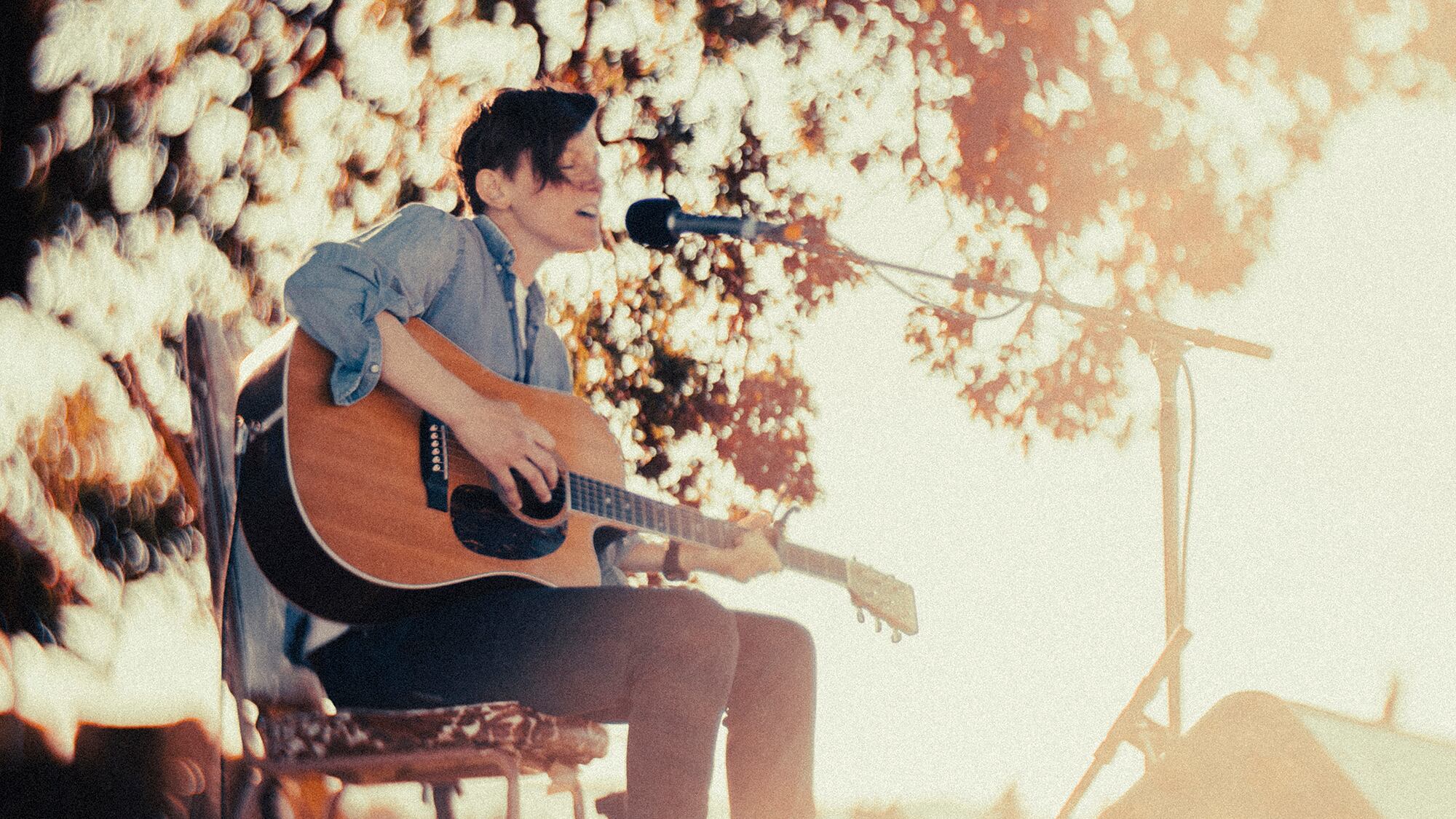“I do feel like my songwriting is a form of storytelling,” says Chris Pureka. “Words are important to me. That’s a big focus in my songwriting. I don’t know if that’s super common.”
Artists like Pureka, who identifies as genderqueer, don’t make a living for almost two decades if they don’t have something to say. Known as a great lyricist, their songs are surprising and profound (particularly “Song for November,” which features some of Pureka’s finest lyrics: “And we made our bed in that familiar graveyard/between the sternum and the spine”).
“I feel like that is a thing I offer,” Pureka says. “I guess I kind of consider myself as more of a poet. I try to have that as part of what I’m doing. It just works for me.”
Pureka began playing the guitar—and soon started writing songs—as a teenager. “I was a closeted teenager,” they say. “I had just quit sports that I was really into and I kind of needed something to channel energy into. It felt like the right fit for me.”
Pureka is known for creating songs that achieve the perfect balance between sadness and hopefulness. “I think it’s built in,” they say. “I see the world through those double lenses. It’s hard for me to write something that’s just one sided. I think it’s hard to find things that are hopeful but still meaningful.”
One of Pureka’s most successful works, “Old Photographs,” was a project prompted by T Cooper’s book Real Man Adventures. The author asked different songwriters to write songs inspired by his book based on his transitioning.
In the song, Pureka sings, “Old photographs, before I even knew my own name/I carry it, I carry it around/All these boxes, but none of them will hold me/Oh lord, at least I have her hands/Finds me in the night, fear underneath my collar/What I know is right and what I know the world is/Haunted by design and the myth of the real thing…” It would be difficult to find a member of the LGBTQ+ community who couldn’t relate to those words in some form or fashion.
“I kind of focused a lot on his relationship with his partner,” Pureka says. “In the book, it seemed like that was kind of the thing that carried him through. I tried to include some different snapshots of things from the book. Obviously, I have my own lived experience too in that sort of state. I haven’t transitioned, but I can relate on a lot of levels.”
While Pureka doesn’t hide that they are a member of the LGBTQ+ community, it would be wrong to assume that gender or orientation defines their songwriting. Their work often focuses on the universal themes of love, relationships and grief that all people can relate to.
“Most of my songs are about my own internal emotional life, but I also write songs about external things,” Pureka says. “Although, it leans more heavily into the former category.” They record and produce independently—and in between full-length studio albums they’ll create an EP with a few songs, including live versions or covers.
That was their plan this past year, but it went awry. “I wasn’t planning on recording so many songs,” Pureka says. “Then I had this new song that was like a pandemic theme song, and I kind of realized everything was coming together in a different way than I thought.”
Pureka’s willingness to switch gears led to their EP The Longest Year, which was released in December. The title track, with the lyrics “The longest year/We feel our lungs fill up with lead/It is a heavy time to have a beating heart/And all I know is we are enough/So keep on and keep your head up…” is a reminder to remain hopeful and resist the temptation to give up.
“I didn’t set out to write a song like that,” Pureka says. “That’s the thing about new songs, they want to be what they want to be. I don’t always even have control over it.”
The Longest Year EP is full of other gems, including a hauntingly beautiful cover of “What a Wonderful World” and the highly intimate and personal “Sky Spinning.” Some of the song’s most poignant lyrics are “I don’t know how to save us/I just know how to let go…I don’t know how to save us/I just know how to save me.”
Of those lyrics, Pureka says, “I think it says a thing that people say in a lot of different ways, but it says it in a way that I hadn’t heard before.”
GO: Chris Pureka play the Old Church, 1422 SW 11th Ave., 503-222-2031, theoldchurch.org. 8 pm Friday, July 15. $20-$25.
